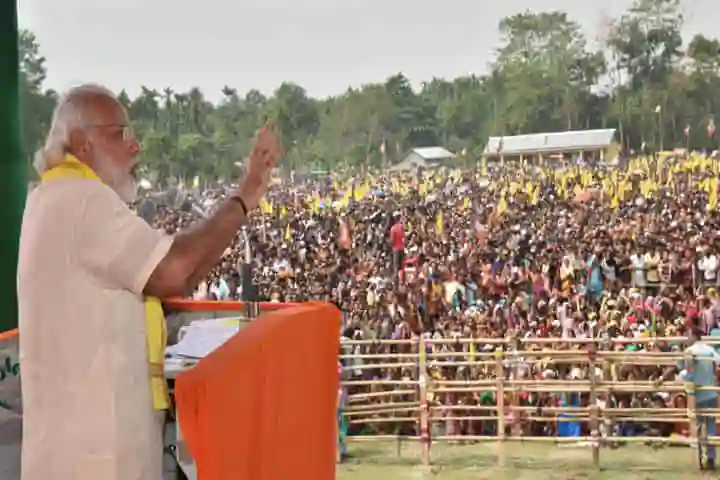Crusaders survive on blind faith; the more blind it is, the deeper become their faith. A small but inexhaustible tribe of academics, think-tankers and media critics who were shocked by Prime Minister Narendra Modi’s substantial and substantive victory in 2019 have now decided that they were, are and will always be right, and the Indian voter was wrong. To buttress this smug argument, they are ready to defame India’s democracy as an “electoral autocracy” since it has committed the cardinal sin of choosing a Prime Minister who did not meet their approval.
It has not crossed the minds of such intellectuals that such an “electoral autocracy” is an oxymoron in the Indian context. India is not a land of single elections leading to permanent, or indeed one of no elections whatsoever in a party-controlled state. India has continual elections according to the Constitutional calendar in which a government is as likely to be defeated as re-elected. If India were an autocracy, BJP would never have lost as vital an election as in Bengal earlier this year. Mamata Banerjee remains in office in Calcutta. Life goes on, until the next contest. This is how it should be. This is how it is.
But critics with the insolent presumption to wonder whether India is a true democracy will never mention Bengal, for they cannot let facts explode their warped thesis.
The corollary, that India’s democratic institutions have weakened to the point of ineffectiveness, is similarly bogus. Once again, we must refer to the latest evidence. The Election Commission conducted the Bengal elections with complete impartiality, proving the strength of a critical institution at a time when myriad polls had predicted a different trend. If the results had been otherwise, there would have been little controversy. But the Election Commission did its duty by the voter, and voter upturned the predictions. Similarly, the judiciary is an active guardian of the law and our Constitutional values, as the Supreme Court and High Courts prove each day.
Bengal also blasted the proposition that India’s democracy is being skewered into what critics are calling an “ethnic democracy”, implying that one demographic denomination has begun to dominate the system, leading to what might be described as a permanent “Hindu majority”. This is absurd. The overwhelming majority of Tamil Nadu, Bengal, Kerala, Andhra Pradesh, Telengana, Odisha, Jharkhand and Chattisgarh are Hindus, but they elect parties with a regional ethos. With equal lack of veracity, or indeed logic, the same authors moan the rise of casteism. Both their assertions cannot be right. Caste divides Hindu and indeed Muslim voters. It does not unite them.
They would have seen the contradiction if they did not have blind faith in their own doctrines. Reality is being distorted by a group of motivated critics in order to serve partisan purposes. Worse, this game of false presumptions is being played with a deliberate desire to wound India’s democratic ecosystem.
Every election in India is now thoroughly unpredictable. This is what makes Indian democracy so fundamentally sound. Those in power, of whichever party, understand this, which is why they take nothing for granted. Sensible leaders take preemptive action against surprise.
The most important change in Indian democracy over the past few decades has been the rise of good governance as the most important factor in the voter’s spreadsheet of concerns. It has not driven away other, more traditional, reasons for voter preference, but good governance has attained a primacy which reflects the urge for equitable economic development. Increasingly the voter has begun to identify development not with huge projects, but with the difference it has made in real terms to the quality of individual and family life. This is what wins and loses elections in contemporary Indian democracy.
Also Read: A weekend snapshot of political Bengal
Also Read: Assembly elections 2021: An East Bengal In West Bengal



















